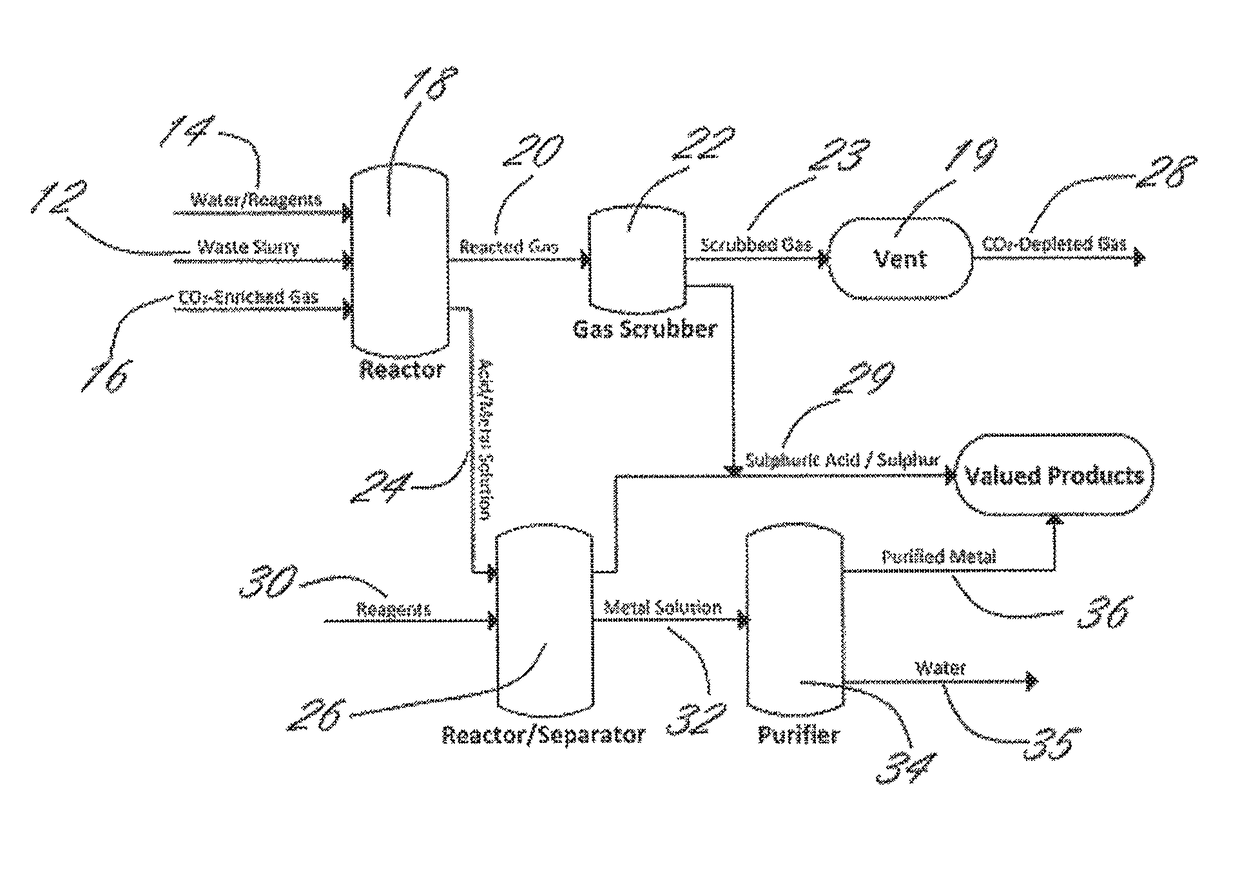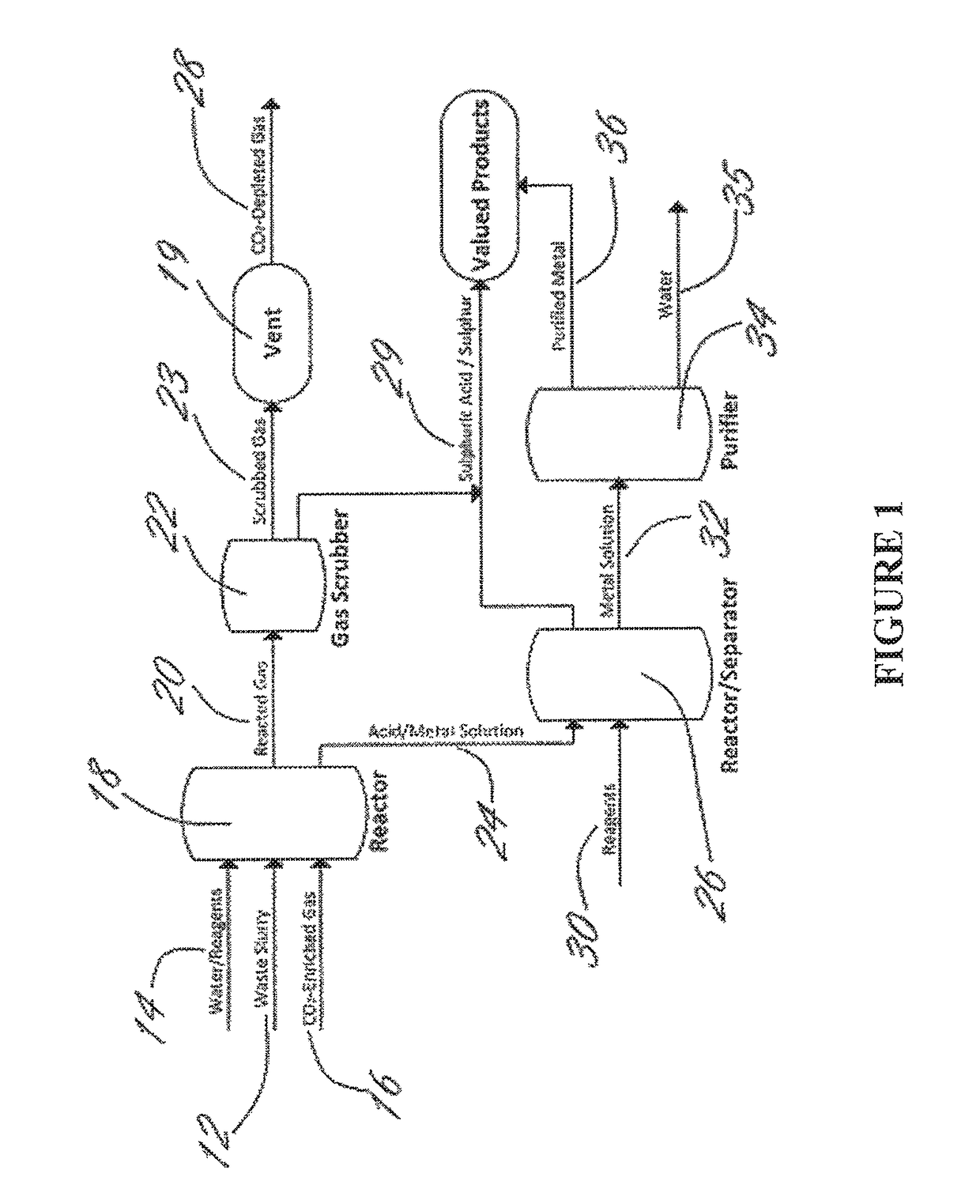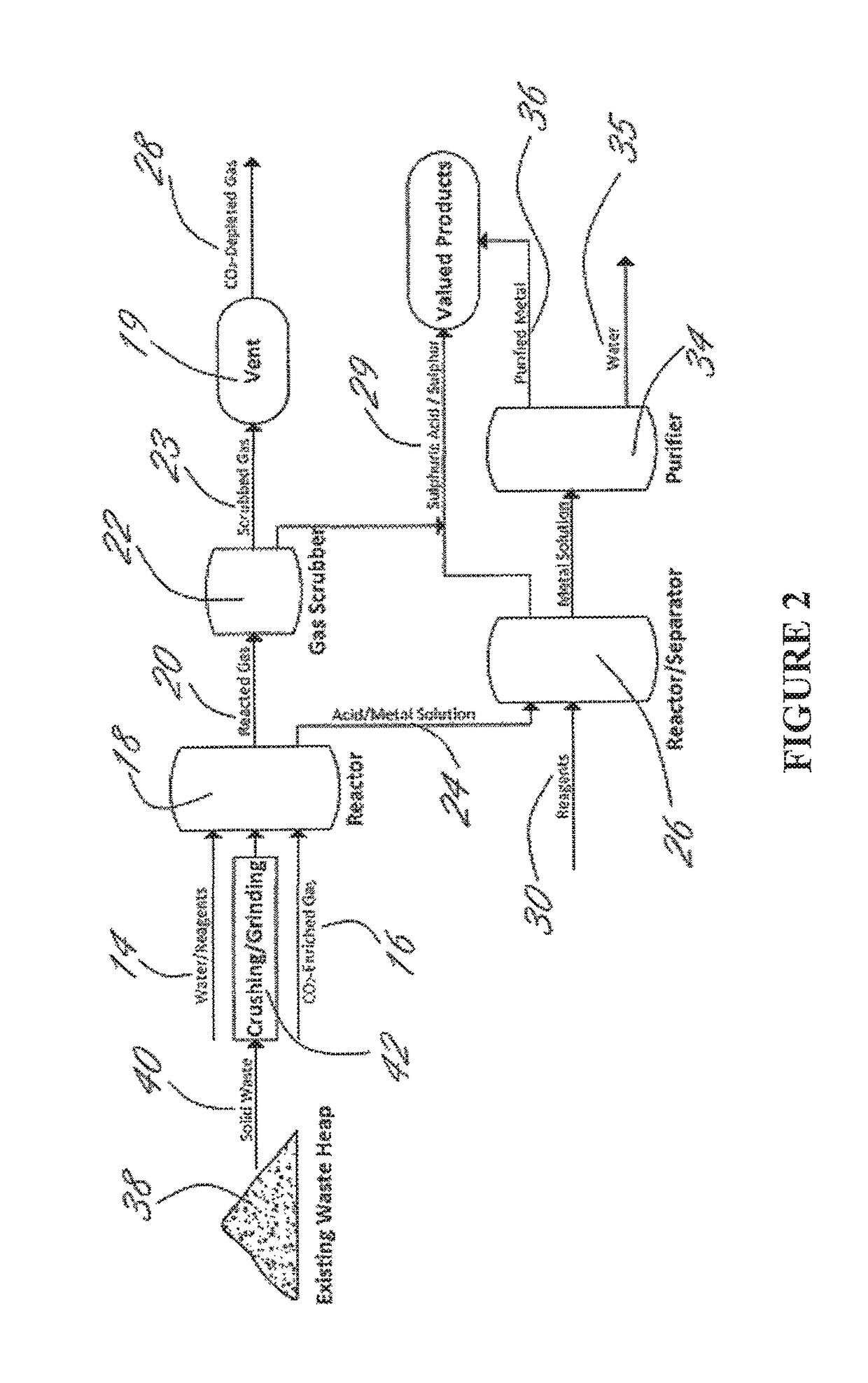Methods and systems using electrochemical cells for processing metal sulfate compounds from mine waste and sequestering CO2
a technology of electrochemical cells and metal sulfate compounds, which is applied in the field of processing mine waste and recovering valued products, can solve the problems of long-term environmental problems, negative environmental consequences, and the impact of mine waste streams from projects with sulfide ores on the environment, so as to reduce the ard and/or metal leaching properties of was
- Summary
- Abstract
- Description
- Claims
- Application Information
AI Technical Summary
Benefits of technology
Problems solved by technology
Method used
Image
Examples
example 1
Feasibility of Reacting CO2-Rich Flue Gas with Sulfide Mine Tailings to Form Stable Carbonates
[0270]These following experiments involved exposing samples of material with elevated levels of sulfide minerals to CO2 gas under various conditions, for varying periods of time, and then using different characterization methods to determine if carbonates have formed.
[0271]The material used in most of these experiments is the reference material CPB-2 available from Natural Resources Canada. CPB-2 is a lead flotation concentrate from the former Sullivan Mine concentrator at Kimberley, British Columbia, Canada. The material is a very fine, black powder. The mineral species contained include galena PbS (64.7%), anglesite Pb(SO4) (12.1%), sphalerite ZnS (10.1%), pyrrhotite Fe1-xS (6.8%), pyrite FeS2 (4.9%), plus various silicates and other phases at <0.6%. Elemental composition is approximately 63.5% Pb, 18% S, 6.0% Zn, 7.1% Fe, with other elements contributing the remainder. Powder X-ray diffr...
example 2
Catalysed Iron-Reduction Experiment
[0304]An experiment was carried out for demonstrating feasibility a SO2 reduction process as described herein.
[0305]Briefly, the experiment used 250 mL Erlenmeyer flasks and constant stirring with magnetic stir bar. To each flask was added 0.2 g FeOOH powder and 150 mL tap water (2 and SO2 in equal proportion. A second flask received the gas mixture but no catalyst. A third flask was filled with water, FeOOH and catalyst to determine if, as expected, SO2 was the reactant.
[0306]Measurements were taken by diluting known volumes of filtered fluid to suitable expected concentrations for testing. Concentrations were determined with colorimetric ferrous iron test strips with combined error on the order of ±10-50 mg / L. The results are presented in the Table 2 below.
[0307]
TABLE 2Results of activated carbon catalyst for SO2 reduction of ferric iron.Fe2+ mg / LTime (h)CatalyzedNot CatalyzedControl000021002501150010001081000300
[0308]As can be appreciated from t...
PUM
| Property | Measurement | Unit |
|---|---|---|
| Pressure | aaaaa | aaaaa |
| Temperature | aaaaa | aaaaa |
| time | aaaaa | aaaaa |
Abstract
Description
Claims
Application Information
 Login to View More
Login to View More - R&D
- Intellectual Property
- Life Sciences
- Materials
- Tech Scout
- Unparalleled Data Quality
- Higher Quality Content
- 60% Fewer Hallucinations
Browse by: Latest US Patents, China's latest patents, Technical Efficacy Thesaurus, Application Domain, Technology Topic, Popular Technical Reports.
© 2025 PatSnap. All rights reserved.Legal|Privacy policy|Modern Slavery Act Transparency Statement|Sitemap|About US| Contact US: help@patsnap.com



